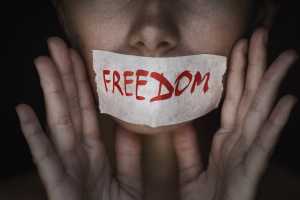Colombo’s online safety law puts freedom of expression at risk
Sri Lanka at risk of "Big Brother" if the proposal from the Sri Lankan government passes. Complaint from Internet Media Action: not only freedom of the press but also freedom of expression of individual citizens at risk.
Colombo (AsiaNews) - In Sri Lanka the "Online Safety Act" is being discussed, a government bill which officially aims to protect internet safety, but which is criticized for its possible uses contrary to freedom of expression.
"It is a serious threat for journalists, for those who create satire, for the creators of digital content and for all citizens who express themselves democratically and online, including through dissent. If approved in its current form, this law will inevitably become one tool for repression through state-imposed sanctions,” said Sampath Samarakoon of Internet Media Action (IMA).
He added: "Despite the proposal being presented as a tool to safeguard especially children from inappropriate content, we believe the project is a draconian measure that aims to stifle dissent and exercise authoritarian control over online content."
The bill would establish an “Online Safety Commission” that would act to “prohibit the online communication of certain statements of fact; prevent the use of online accounts and inauthentic online accounts for prohibited purposes; adopt provisions to identify and declare online locations used for prohibited purposes in Sri Lanka and to eliminate funding and other support for the communication of false declarations", as well as other unspecified matters. Likewise, the draft proposed by the Colombo government does not addresses how this act covers external digital influence operations in the country, particularly from China.
The IMA is also concerned about how this act may expand Sri Lanka's state surveillance, which normalizes pervasive and invasive captures of private communications.
The problems don't end here according to the association: "Experts have drawn worrying comparisons between this proposed law and Singapore's "Protection from Online Falsehoods" law (POFMA), underlining its inadequacy as a transplant of another country's legislation. without considering the enormous differences in the political, technological and social context between the two nations. What many critics have found problematic in the Singapore context will be completely catastrophic for human rights in Sri Lanka.” They explain from IMA. Especially in a state already defined by various international rankings with a democratic deficit that is expanding at a rapid pace.
Meanwhile, former President of the Bar Association of Sri Lanka (BASL), Presidential Counsel Saliya Pieris, highlighted that in Sri Lanka the new Online Safety Bill would open up a space for the police and political authorities also to abuse the rules against their political rivals. Peiris himself said that if this draft was presented to parliament, the Supreme Court would have to challenge it.







.png)










